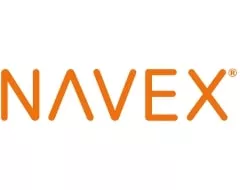- with Senior Company Executives, HR and Finance and Tax Executives
- in United States
- with readers working within the Accounting & Consultancy, Business & Consumer Services and Healthcare industries
The Department of Justice (DOJ) in recent weeks unveiled a newly created whistleblower rewards program within its Antitrust Division and an expanded whistleblower rewards program with the Criminal Division. The announcements come alongside the recently amended Corporate Enforcement and Voluntary Self-Disclosure Policy (CEP), which provides several new benefits for companies that self-disclose and cooperate in DOJ investigations.
By way of background, Deputy Attorney General (DAG) Todd Blanche on June 9, 2025, issued a memorandum directed to the head of the Criminal Division, detailing evaluation criteria and a non-exhaustive list of factors to consider when determining whether to pursue investigations and enforcement actions for Foreign Corrupt Practices Act (FCPA) violations.
DAG Blanche's memo, in part, directed the Criminal Division to prioritize investigations concerning foreign bribery linked to the criminal operations of cartels and Transnational Criminal Organizations (TCOs) and to shift focus away from cases that don't have such a connection. It followed in response to President Trump's Executive Order 14209.
Whistleblower Rewards Pilot Program
On May 12, 2025, Matthew Galeotti, head of the Criminal Division, issued a memo to all Criminal Division personnel regarding a revised " Corporate Whistleblower Awards Pilot Program." In that memo, Galeotti highlighted new "priority areas of focus" for when a whistleblower provides original, truthful information about criminal misconduct relating to one or more designated program areas that leads to civil or criminal forfeiture exceeding $1 million in net proceeds.
As described in the memo, the new priority areas are:
- Violations by companies related to cartels or TCOs, including money laundering, narcotics, and Controlled Substances Act violations
- Violations by companies of federal immigration laws
- Violations by companies involving material support of terrorism
- Corporate sanctions offenses
- Trade, tariff, and customs fraud by companies
- Corporate procurement fraud
In remarks at the American Conference Institute's (ACI) "Global Anti-Corruption, Ethics & Compliance" event, held June 3 in New York, Galeotti said the agency already has started receiving tips in many of these new areas. "[W]e received tips related to drug trafficking and corruption, procurement fraud, healthcare fraud, and more," he said.
Antitrust division's whistleblower rewards program
On July 8, the Antitrust Division, in partnership with the U.S. Postal Inspection Service and the U.S. Postal Service Office of Inspector General (USPS OIG), announced a newly created "Whistleblower Rewards Program." To facilitate reporting, the Antitrust Division further has established a dedicated Whistleblower Rewards Program webpage.
Whistleblowers who voluntarily report "original information" about antitrust and related offenses that result in criminal fines or other recoveries of at least $1 million may be eligible to receive a whistleblower reward. If a whistleblower is eligible for an award, the presumptive award amount will be between 15% and 30% of the amount of the criminal fine or recovery.
In a press release, Antitrust Division Assistant Attorney General Abigail Slater said the aim of the whistleblower rewards program is to "create a new pipeline of leads from individuals with firsthand knowledge of criminal antitrust and related offenses" that will help break down "walls of secrecy and hold violators accountable." Slater further warned that the new program "raises the stakes" for companies engaged in price-fixing or bid-rigging.
"This reporting mechanism gives those with a vested interest in maintaining the integrity of the Postal Service the opportunity to join us in the fight," Chief Postal Inspector Gary Barksdale stated in the press release.
Revised CEP
Announcement of the Criminal Division's enhanced whistleblower rewards program and the Antitrust Division's newly established whistleblower rewards program follow alongside the newly revised CEP, the Criminal Division's primary guide to corporate enforcement and voluntary self-disclosure.
Notably, the changes make clearer the benefits for companies that self-report misconduct. The new CEP, which includes an easy-to-follow flow chart, states that companies that "voluntarily self-disclose and meet other criteria will receive a declination, not just a presumption of a declination," Galeotti highlighted in remarks at SIFMA's annual Anti-Money Laundering and Financial Crimes Conference.
"More precisely, those companies that meet our core requirements—voluntarily self-disclose to the Criminal Division, fully cooperate, timely and appropriately remediate, and have no aggravating circumstances—will not be required to enter into a criminal resolution," Galeotti added. "This is a clear path to declination."
The revised CEP also states that, in cases involving aggravating circumstances, a company may still receive a declination, dependent upon the severity of the aggravating circumstances and the company's cooperation and remediation, Galeotti said.
Thirdly, the CEP makes clear that companies that self-disclose "in good faith" but not "quickly enough or after, unbeknownst to them, the Department has already become aware of the misconduct," could still receive "significant benefits," including a non-prosecution agreement (NPA) with a term of fewer than three years, a 75% reduction off the criminal fine, and no corporate monitor. "Where a company does not self-disclose, it will not receive these benefits," Galeotti said.
Lastly, the CEP now requires Criminal Division prosecutors to impose a term that is "appropriate and necessary," weighing such factors as severity of the misconduct, the degree of cooperation and remediation, and the effectiveness of the compliance program at the time of resolution. The term should not exceed three years, except in "exceedingly rare cases," and Criminal Division prosecutors are advised to assess agreements regularly "to determine if they should be terminated early," Galeotti said.
Compliance takeaways
Compliance professionals can glean many important messages from the latest developments. The most important message is this: "Never before have the benefits of self-reporting and cooperating been so clear – and you are the eyes and the ears of your companies," Galeotti stressed. "You have the opportunity to see something, report something, and make sure your company can work with the Department to root out individual misconduct and receive all the benefits we have to offer."
Empower your whistleblowers
In this new enforcement landscape, a strong speak-up culture is more critical than ever. Ensure your employees have trusted, secure channels to report misconduct and help your organization manage risk effectively.
The content of this article is intended to provide a general guide to the subject matter. Specialist advice should be sought about your specific circumstances.
[View Source]

